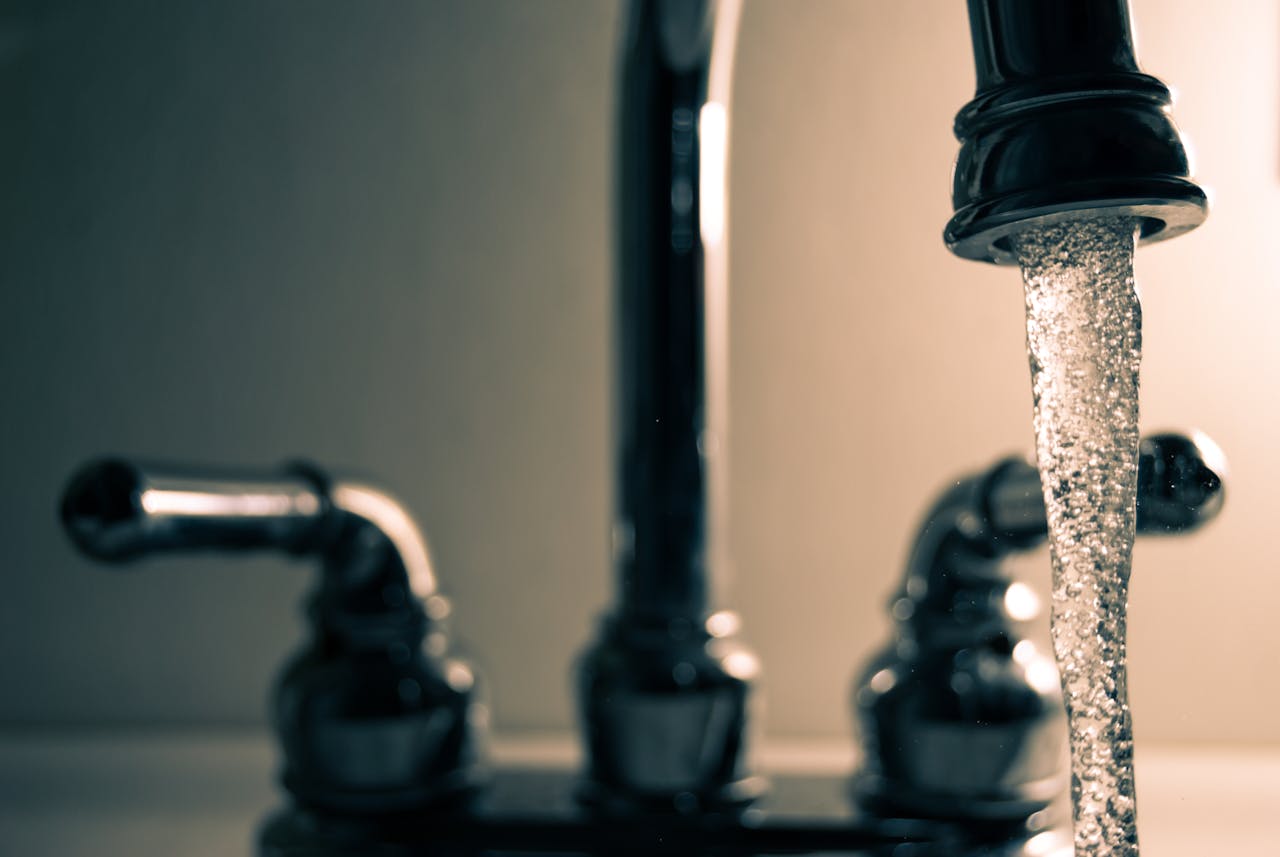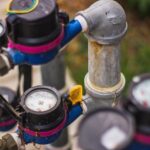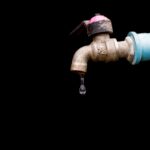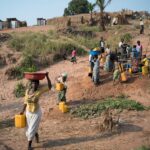Water Infrastructure in Nigeria – What Needs to Improve?

Water is the lifeblood of any nation, and Nigeria is no exception. But when it comes to our water infrastructure, there’s a lot of room for improvement. From the taps in our cities to the wells in our villages, the systems that bring this precious resource to our homes, farms, and businesses need serious attention.
You see, a country can’t really reach its full potential if its water infrastructure is crumbling. It’s like trying to build a house without a solid foundation – everything else just falls apart. And that’s exactly what’s happening in many parts of Nigeria.
In this article, we’re going to dive deep into the state of our water infrastructure, unpack the key challenges we’re facing, and explore what needs to be done to ensure every Nigerian has access to the clean, reliable water they deserve.
A Look at Nigeria’s Water Systems
Let’s start with the basics. Nigeria has a mix of water infrastructure, from urban centers to rural communities. In the cities, we’ve got piped water networks, where water is supposed to flow straight from the taps in our homes.
But the reality is often quite different. In many cities, these pipe systems are old, leaky, and struggle to keep up with the growing population. Water might only come out of taps a few times a week, if at all.
Head out to the rural areas, and the situation gets even tougher. In rural areas, people often rely on boreholes, hand-dug wells, or rivers and streams to get their water. But these sources can be unreliable, seasonal, or even contaminated.
And then there are the big infrastructure projects, like dams and reservoirs. These are supposed to help manage our water resources, providing water for everything from drinking to irrigation. But many of these facilities are ageing, neglected, and struggling to do their job effectively.
The Challenges We Face
Now, you might be wondering, “Wait, why is our water infrastructure in such a mess?” Well, my friend, the reasons are plenty.
First, there’s the issue of age. A lot of our water pipes, treatment plants, and storage facilities are just plain old. They were built decades ago and haven’t kept up with Nigeria’s rapid growth.
Then there’s the problem of population. Nigeria’s growing fast, and our cities are expanding at a dizzying pace. But the water systems haven’t been able to keep up. It’s like trying to feed a hungry family with a tiny bowl of food.
And let’s not forget about the weather. Climate change is throwing us some real curveballs, with droughts, floods, and other extreme events that our water infrastructure just isn’t designed to handle.
The Struggle in Our Cities
If you live in one of Nigeria’s big cities, you know the water situation can be a real headache. The pipe systems that are supposed to bring water to our taps are often in shambles.
Leaks and bursts are common, causing water to just disappear into the ground instead of reaching our homes. And when the water does flow, it’s not always clean or safe to drink. All that dirt and foulness that comes out can make you sick.
The water treatment plants that are supposed to purify our supply are also struggling. Many of them are outdated and can’t keep up with the growing demand.
So, what happens? Well, a lot of us end up relying on alternative sources, like private boreholes or water vendors. But that can be expensive, and the quality of the water isn’t always guaranteed.
The Water Gap Between Urban and Rural
While urban water woes are bad, the situation in Nigeria’s rural areas are worse off. In many villages, clean, reliable water is hard to come by.
People often have to trek long distances to fetch water from rivers, streams, or hand-dug wells. And these sources aren’t always safe, as they are often contaminated.
Some communities do have access to boreholes, which are basically deep wells with mechanical pumps. But even these can be hit-or-miss. The pumps often break down, and there’s no one around to fix them. So, the water just dries up, and it’s back to business as usual – the long walks to the nearest questionable water source.
Dams, Reservoirs, and the Quest for Water Security
Now, you might think that with all the rivers, lakes, and groundwater reservoirs we have in Nigeria, water scarcity wouldn’t be a problem. But the truth is, we’ve got some serious issues when it comes to managing our water resources.
Take our dams and reservoirs, for example. These big infrastructure projects are supposed to help us store water, control floods, and provide irrigation for our farms. But many of them are in rough shape. Some are silted up, others are leaking, and a few have even collapsed, causing massive damage.
And it’s not just the physical condition of these facilities that’s a concern. There are also challenges with how we manage and distribute the water they store. Sometimes, the water ends up going to the wrong places or getting wasted due to poor planning and coordination.
It’s a real headache, and it’s one that’s only going to get worse as the effects of climate change start to bite. Droughts, floods, and other extreme weather events can wreak havoc on our water storage and distribution systems, leaving communities high and dry.
Water Quality and Treatment
Nigeria needs better ways to clean water before it reaches homes and businesses, as it faces big problems with water quality.
Right now, there aren’t enough water treatment plants. The ones that exist often don’t work well because they’re old or broken. This means that even in cities, tap water isn’t always safe to drink, let alone rural areas.
To fix this, Nigeria needs to build more treatment plants and fix the old ones. It also needs to train more people to run these plants properly. Using newer cleaning methods could also help make water safer for everyone.
Sanitation Infrastructure
Clean water is only one part of the picture. Getting rid of dirty water is just as important. In cities, old and broken pipes often let sewage leak into streets or mix with clean water. This creates health risks and bad smells.
Rural areas face different challenges. Many villages lack toilets or proper ways to handle human waste. This can pollute water sources and spread diseases.
The link between sanitation and water quality is strong. When human waste isn’t handled properly, it often ends up in the water people drink. This creates a cycle of illness that’s hard to break.
To improve, Nigeria needs to fix and expand city sewage systems. In rural areas, building more toilets and teaching people about good sanitation practices could make a big difference.
Technological Innovations in Water Infrastructure
New technologies could help solve some of Nigeria’s water problems. Smart systems can detect leaks quickly, saving water and money. They can also help manage water use better, especially during dry seasons.
There are also new ways to clean water that use less energy and fewer chemicals. These could be especially useful in rural areas where it’s hard to get supplies.
However, using these new technologies isn’t easy. They can be expensive to set up and require trained people to run them. Nigeria would need to invest in education and training to make the most of these innovations.
Despite these challenges, embracing new water technologies could help Nigeria leap forward in providing clean water to its people.
Funding and Investment Needs
Improving water systems costs a lot of money. Right now, Nigeria isn’t spending enough to fix its water problems. The country needs billions of dollars to build new pipes, treatment plants, and other water structures.
Getting this money isn’t easy. The government’s budget is stretched thin by many needs. International aid helps, but it’s not enough to solve the problem.
One solution could be partnerships between the government and private companies. These partnerships could bring in more money and expertise to water projects. However, they need to be set up carefully to make sure water stays affordable for poor people.
Finding ways to fund water improvements is crucial. Without more investment, Nigeria’s water problems will only get worse as the population grows.
Policy and Governance
Nigeria has laws and rules about water, but they often don’t work well in practice. Different government offices deal with water, but they don’t always work together smoothly. This leads to confusion and wasted efforts.
The country needs clearer policies about who is responsible for what in the water sector. It also needs stronger ways to enforce rules about water use and pollution.
Better coordination between different parts of the government could help a lot. So could involving local communities more in decisions about water. When people have a say in how their water is managed, projects often work better.
Environmental Impacts and Sustainability
Nigeria’s water infrastructure doesn’t just affect people, it also has a big impact on the environment. The way we manage water can help or harm nature around us.
Right now, many of Nigeria’s water practices aren’t good for the environment. Polluted water from cities often flows into rivers and lakes, harming fish and plants. Overuse of groundwater in some areas is making the land sink, a problem called subsidence.
Building dams and reservoirs changes river ecosystems. While these structures help control floods and generate power, they can also disrupt the habitats of many species.
To create a better future, Nigeria needs to focus on sustainable water management. This means finding ways to meet people’s water needs without damaging nature.
One approach is to protect and restore natural water sources like wetlands. These areas act like nature’s kidneys, cleaning water and providing homes for wildlife. They also help prevent floods.
Another important step is to reduce water waste. Fixing leaky pipes and encouraging people to use water wisely can help a lot. Some cities are starting to collect rainwater to use for things like watering plants or flushing toilets.
Using cleaner technologies for water treatment can also make a big difference. Methods that use fewer harmful chemicals are better for the environment and often cheaper in the long run.
Thinking about the environment isn’t just good for nature, it’s also crucial for people. Clean rivers and lakes provide water for farming and fishing. Healthy ecosystems can help protect against extreme weather, which is becoming more common due to climate change.
By focusing on sustainability, Nigeria can build a water system that works well for both people and nature. This approach can help ensure that future generations have access to clean water and a healthy environment.
Future Outlook and Recommendations
Looking ahead, Nigeria’s water situation faces both challenges and opportunities. The country’s growing population and changing climate will put more pressure on water systems. But with the right steps, Nigeria can turn things around.
One key area for improvement is urban water networks. Fixing leaky pipes and expanding coverage could bring clean water to millions more city dwellers. In rural areas, the focus should be on building more local water points and making sure they last.
Long-term planning is crucial. Nigeria needs to think decades ahead when building new dams or treatment plants. This means considering future population growth and possible climate changes.
Technology will play a big role in improving water infrastructure. Smart meters can help manage water use better. New cleaning methods could make water treatment cheaper and more effective.
Education is another important piece of the puzzle. Teaching people about water conservation and good hygiene can make a big difference. Schools could play a key role in spreading this knowledge.
Involving local communities in water projects is vital for success. When people have a say in how their water is managed, they’re more likely to maintain systems well.
Lastly, finding steady funding for water projects is a must. This might mean setting up special water funds or working more with private companies. The key is making sure that water improvements keep happening, year after year.
Conclusion
Nigeria’s water infrastructure needs a lot of work, but the potential for positive change is huge. By focusing on key areas, like urban networks, rural access, and water treatment, the country can make big strides.
Better water systems would mean healthier people, stronger farms, and thriving businesses. It’s not just about pipes and pumps, it’s about building a better future for all Nigerians.
The task ahead is big, but it’s one that the country can tackle with determination and smart planning. Every step towards better water infrastructure is a step towards a stronger, more prosperous Nigeria.
In this effort, AquaMaya is playing a crucial role. Our mission to bring clean, safe water to West African communities aligns perfectly with Nigeria’s needs.
As Nigeria works to improve its water infrastructure, support from groups like AquaMaya could help accelerate progress. It is our goal at AquaMaya to reach 10 million people with clean water access, and this could significantly contribute to reducing waterborne diseases and improving overall health in the region.
In the end, improving Nigeria’s water infrastructure is a task that requires everyone’s involvement, from government agencies to international organizations, and local communities to individual citizens. With concerted effort and support from all corners, Nigeria can build a water system that serves all its people well into the future.
Sources:
1. https://www.mdpi.com/2073-4441/13/17/2416
4. https://www.preventionweb.net/news/nigeria-floods-governments-mismanagement-dams-major-cause
6. https://www.who.int/news-room/fact-sheets/detail/sanitation
7. https://articles.nigeriahealthwatch.com/smart-meters-bring-water-savings-to-nigerian-households/






